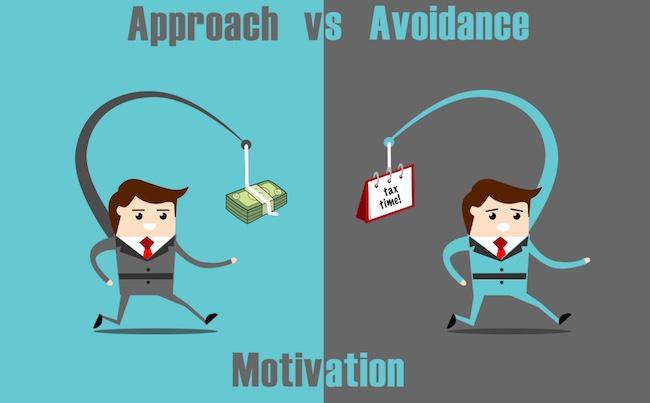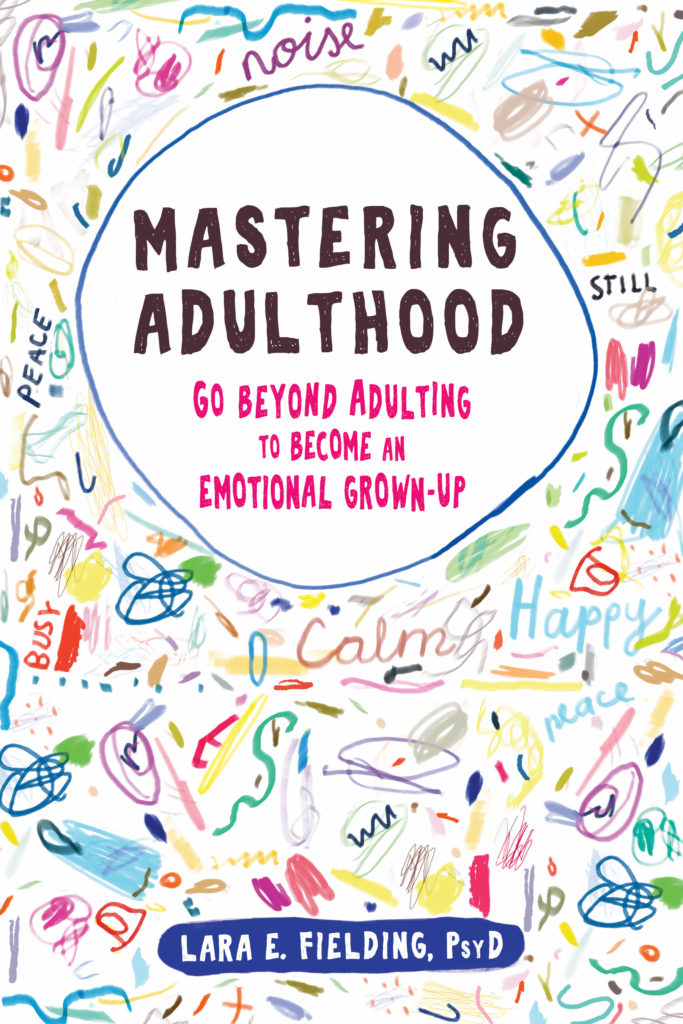What gets you moving? When you have a goal or need a change, what’s top of mind; the reward – or the avoidance of a loss?
Today’s SKILL WEEKLY talks about the pros and cons of each, and has a mini-quiz about drives your motivation, and how to use it to your advantage!
Approach V. Avoidance Motivation
Approach motivated people tend to focus more on the rewarding outcome as the motivating factor in pursuing goals. The more likely the reward, the more likely these peeps are to take more risks, even at the possible cost of mistakes.
On the other hand, avoidance motivated people are more likely to be cautious and conservative in their choices to prevent mistakes or failures. But they may miss out on opportunities. The question is, which works best to achieve the success we seek?
The Role of Time
The difference in successful outcomes between avoidance driven versus reward driven goal setting may depend on when you start planning. According to Elliot (2006) avoidance motivation focuses on promoting survival (i.e. just getting through the moment), where approach motivation promotes our growth, thriving, and development.
Avoidance Works in the Short-Term.
Numerous studies have shown that avoidance oriented strategies, such as distraction, work better when we’re combating temptation away from a goal. For example in studies where a smaller immediate reward is presented, but a larger one awaits if the participant is willing to forgo the salient short term reward. In these cases, avoidance is a better bet than focusing on the future reward.
But these studies have predominantly examined self-control in the context of immediate outcomes. Like when you’re offered that delicious desert. But you know you wanna fit in your skinny jeans for an upcoming date! In these types of immediate gratification situations, control strategies are more successful.
Researchers have also called this a prevention focus: more intent is placed on security, responsibility and safety. From this perspective we’re more concerned with setting goals that protect us and fulfilling obligations (Higgins, et. Al., 2001).
Approach Works Over Longer Time.
On the other hand, approach motivation strategies work best for building towards bigger picture, longer-term successes. Approach motivation is more aligned with a promotion focus: hopes, accomplishments and ideals are top of mind. Goals are more related to the personal advancement and potential gains.
This motivation strategy has been found to predict goal and task mastery, greater persistence, enjoyment and performance (e.g., Elliot & Church, 1997; Elliot & Thrash, 2002).
Here we have our eyes firmly on our big picture values in making decisions about our life direction. Our values, and what we hold as most important, give dignity to the discomfort of forgoing immediate gratification!
Promotion versus Prevention: A Mini Quiz
So which is your style? Below are some questions borrowed from the Composite Regulatory Focus Questionnaire (Haws, Dholakia & Bearden, 2010).
Prevention Focus
1. I usually obeyed rules and regulations that were established by my parents.
2. Not being careful enough has gotten me into trouble at times.
3. I worry about making mistakes.
4. I frequently think about how I can prevent failures in my life.
5. I see myself as someone who is primarily striving to become the self I “ought” to be to fulfill my duties, responsibilities and obligations.
Promotion Focus
1. When it comes to achieving things that are important to me, I find that I perform close to as well as I would ideally like to do.
2. I feel like I have made progress toward being successful in my life.
3. When I see an opportunity for something I like, I get excited right away.
4. I frequently imagine how I will achieve my hopes and aspirations.
5. I see myself as someone who is primarily striving to reach my “ideal self” to fulfill my hopes, wishes, and aspirations.
Both motivation styles can be helpful – at the right time! When we’re faced with a short term motivation conflict (e.g chocolate cake is offered when we’re trying to reduce sugar. Or when there’s a great party, but you have a test in the morning.) The former will help get your through most successfully.
But when you’re working on being proactive, rather than reactive; building a life beyond the tasks of adulting – avoidance and prevention strategies can lead to missed opportunities.
The Practice: Identifying Values
When you need a compass for your life direction, your True North Values will give power to the pull of possibilities. While considering the place you want to go, versus where you are may be painful initially, there are some simple questions you can ask yourself to see if you’re on course.
Let’s Practice.
Ask yourself the following questions to start getting an idea of the kind of adult you want to be and become.
1. As a friend, I would like to be the kind of person who _____________________, and shows this in my actions by ______________________________________.
2. In my career, I would like to be the kind of person who __________________________, and shows this in my actions by _________ _____________________________________________.
3. As a _______________(other area of your life), I would like to be the kind of person who ___________________________________, and shows this in my actions by___________________________________________________.
I hope you find this blog helpful! If you have any questions, shoot me a message in the comments section. We’re all in this thing called Mastering-Adulthood together. So, let me know if you have any questions about how to be skillful with your emotions and building a life you love! And, may you BE-Well.
This blog was inspired by Dr. Fielding’s upcoming book: Mastering Adulthood: Go Beyond Adulting to Become an Emotional Grownup. To learn more helpful skills for Mastering Adulthood, sign up for the Mindful-Mastery SKILL WEEKLY newsletter, or follow me on Facebook, (link is external) Twitter, (link is external) or Instagram. (link is external) Or YouTube (link is external)for skills videos!


